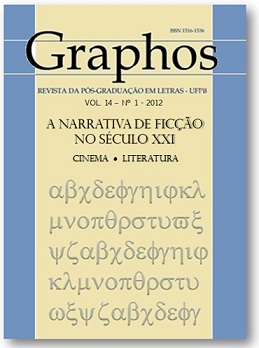Intertextuality, historiographic metafiction and post-modern parody in dialogue with the tradition of historical novels in Netto perde sua alma
Keywords:
Historical novel, Post-modern Parody, IntertextualityAbstract
This paper analyzes how the historical novel Netto perde sua alma, by Rio Grande do Sul author Tabajara Ruas, articulates a perspective that is characteristic of the 21st Century, in dialogue with the tradition of the classical historical novel, such as inaugurated by Sir Walter Scott and theorized by Georg Lukács (1983). The starting point of the close analysis is the relationship between the characterization of the protagonist of the narrative, General Antônio de Souza Netto, and the representation of the past. The contemporariness of the form of this novel is based on the conscious use of multiple intertexts grounded on the concepts of postmodern parody and historiographic metafiction, according to the definitions by Linda Hutcheon (1985, 1988, 1989, 1991). One of the conclusions of the study is that the novel’s fragmented form, its subjective point of view, and its sometimes unreliable narrator are traits which are responsible for its contemporariness, as they articulate a contemporary view on the relation between individuals and the historical process, which is becoming an increasingly individualized and fragmented experience.
Downloads
References
ANDRADE, Flávia Adriana. Ficções sobre o general Netto: história, literatura e cinema. 2003. Dissertação (Mestrado em Letras), PUCRS, Porto Alegre, RS.
BALDERSTON, Daniel (Org.). The historical novel in Latin America. Hispamerica, Tulane University, 1986.
DISTANTE, Carmelo. Prefácio de A divina comédia de Dante Aliguieri. Trad. Italo Eugenio Mauro. São Paulo: Editora 34, 1998.
HUTCHEON, Linda. A Theory of Parody: the teachings of twentieth-century art forms. Londres: Methuen, 1985.
______. A Poetics of Postmodernism: history, theory, fiction. Nova Iorque e Londres: Routledge, 1988.
______. The Politics of Postmodernism. Londres: Routledge, 1989.
______. A poética do pós-modernismo: história, teoria e ficção. Trad. Ricardo Cruz. Rio de Janeiro: Imago, 1991.
JAMESON, Fredric. Postmodernism, or, The Cultural Logic of Late Capitalism. New Left Review, 146. 1984. p. 53-92.
LUKÁCS, Georg. The Historical Novel. Trad. Hannah e Stanley Mitchell. Lincoln e Londres: Universidade do Nebraska, 1983.
MENTON, Seymour. La nueva novela histórica de La América Latina, 1979-1992. México: Fondo de Cultura Económica, 1993.
PORTO ALEGRE, Aquiles. Antonio de Souza Netto. In. Homens Ilustres do Rio Grande do Sul. Porto Alegre: Erus, s.d., p. 33-36.
ROSA, Othelo. Antonio de Souza Netto. In. ______. Vultos da epopeia farroupilha. Porto Alegre: Livraria do Globo, 1935. p. 37-46.
RUAS, Tabajara. Netto perde sua alma. 6.ed. Rio de Janeiro: Record, 2009.
SHAKESPEARE, William. Ricardo III. Trad. Beatriz Viégas-Faria. Porto Alegre: L&PM, 2007.
SOUZA, Beto e Tabajara Ruas. Netto perde sua alma. Manaus: Europa Filmes, 2003; Rio Filmes e Piedra Sola Produções, 2001.
VARELA, Alfredo. História da grande revolução. Porto Alegre: Livraria do Globo, 1933. p. 105-120.







